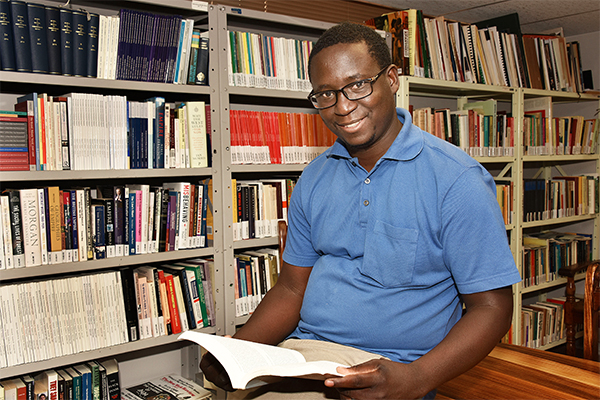Latest News Archive
Please select Category, Year, and then Month to display items
26 January 2022
|
Story Rulanzen Martin
|
Photo University of the Western Cape
 The late Prof Jaap Durand.
The late Prof Jaap Durand.
The management of the University of the Free State (UFS) is saddened to learn of the passing of Prof Jaap Durand, revered theological academic and author. Prof Durand obtained his master’s degree from the UFS and received an honorary doctorate in Philosophy from the UFS in 2004.
Prof Durand has had a colourful career as academic, writer, and struggle activist: from Professor of Systematic Theology and Dean of the Faculty of Theology at the University of the Western Cape to Deputy Vice-Chancellor of the same university. He also served as the ombudsman of Stellenbosch University from 2002 to 2003.
During his life, Prof Durand was a unifier and a critical voice, speaking out against injustice. He has also authored several books, including Dit is amper dag; Evolusie, wetenskap en geloof, and Protesstem.
The UFS joins the higher education community in mourning and is deeply saddened by the loss of such a great theologian and academic. We wish to convey our deepest condolences to Prof Durand’s family, friends, and loved ones during this time.
Land a fertile field for historians
2017-12-25

Dr Admire Mseba, historian and researcher in the International Studies Group (ISG).
Photo: Charl Devenish
The use of land and the economics of Southern Africa at present is a contentious subject at almost every level of society. A historian and researcher who revels in happenings in these two areas, is Dr Admire Mseba, a postdoctoral research fellow in the International Studies Group (ISG) at the UFS.
Dr Mseba grew up in the Mberengwa region in southern Zimbabwe, known for cattle farming and mineral mining. While at the University of Zimbabwe, he became interested in economic history and archaeology, and completed his PhD at the University of Iowa in the USA. During his time there, Dr Mseba also became passionate about environmental history.
A historian's ability to think and engage critically on diverse subjects drew Dr Mseba to his field. Currently, he is busy with three research projects. Firstly, he is working on a book on social relations, about access to land in Zimbabwe. He is also examining regional and national efforts to control migratory pests during the 20th century, in particular, the red locust. In collaboration with a colleague at the ISG, Dr Mseba is also researching monetary systems in central Africa, covering the present-day countries of Zimbabwe, Malawi, and Zambia.
Dr Mseba believes future research opportunities in the domains of economic and environmental history abound. For one, the land question has been very topical in Zimbabwe for more than a decade—as it is now in South Africa—and needs more scrutiny. Regarding agrarian pestilences, he indicates the recent phenomenon of armyworm invasion. “There are so many opportunities for historians to investigate. There are so many ways to think about these things and trying to put it in perspective.”